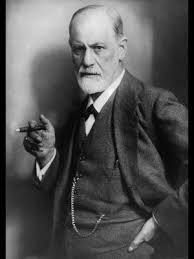In Freud’s view, the child’s progress through these psychosexual stages is a major determinant of personality in later life.These Psychosexual Stages Are discussed in detail here.

The Oral Stage.
During the first year of life, the child goes through the oral stage of psychosexual development. In this period, the infant’s sexual energies are focused on the mouth and on sucking, feeding, chewing, and biting. Psychologically, Freud believed, the oral stage is linked to issues of dependency and trust, because the infant must depend on and trust adults for sustenance. According to Freud, a painful sucking period can produce a person who is manipulative, hos- tile, and mistrustful, and over-gratification at the sucking stage can lead to an overly trusting adult who is gullible and dependent.
Oral, Anal, Phallic, Latency, And Genital Are Psychosexual Stages According To Sigmund Frued
The Anal Stage.
During the anal stage, in the second and third years of life, the child’s sexual energies focus on the anus and the act of defecation. When children are toilet trained, they can decide for themselves whether or not to move their bowels and, in the process, whether or not to obey their parents. Thus, the central psychological issues of the anal stage involve giving and holding back, cleanliness and messiness, resistance and compliance. A toddler who negotiates the anal stage successfully should, in Freud’s view, develop into an adult who is flexible rather than obstinate or submissive, generous rather than stingy or a spendthrift, and tidy rather than excessively fastidious or messy. If too much anx- iety surrounds toilet training, the child may grow up to be compulsively clean and orderly. If the parents lose in the toilet-training contest, and the child learns he or she can always get his or her way, a lifelong pattern of messiness and negativism may develop.
The Phallic Stage and the Oedipus Complex.
In the phallic stage of development (about ages 3 to 5), the sex organs become the focus of attention. (The term phallic comes from phallus, the Greek word for penis.) The key event in this stage, Freud believed, is the child’s feeling of sexual attraction toward the opposite-sex parent, accompanied by envy of the same-sex parent. Freud called this sit- uation, and the psychological conflicts it produces, the Oedipus complex. In Greek mythology, Oedipus killed his father and married his mother, unamlre Of their true identities. Of course, killing one’s father and sexually possessing One’s mother represent an extremely unhealthy resolution to the Oedipus complex. Freud’s point was that all children must resolve in some way the conflict created by attraction to one parent and envy of the other. In Freud’s view, the way a child resolves this conflict has considerable impact on later personality development. Freud’s initial analysis of the Oedipus complex focused on boys.
According to Freud, the boy at Chis stage fears at least in his fantasies and dreams—that his father will recognize the boy’s desire to replace him and will punish the boy by castrating him (that is, cutting off his penis). This fear is called castration anxiety. If the Oedipus complex is adequately managed, the boy learns to control his envy, fear, and hostility toward his father. He identifies with his father’s power and masculinity and converts his hostility into motivation for accomplishment in life. Now the boy wants to be like his father—to bc an active, assertive male. This identification with the father also leads to development of the superego: the boy incorporates parental ideals and values into his own personality.
The Latency Period.
At the end of the phallic stage (about age 5), Freud believed, the child enters a period of psychosexual latency, during which previous sexual feelings are forgotten and sexual urges lie dormant. Instead, the child focuses on learning skills that will eventually enable him or her to become a contributing member of society.
The Genital Stage.
At puberty, when sexual interest reawakens, the child enters the genital stage. This is the Stage of adult sexual relationships, when sexual energies again focus on the genital organs—the penis and the vagina. Freud didn’t have much to say about the genital stage. He seemed to assume that if you got through the oral, anal, and phallic periods successfully, you would be all right. Freud’s analysis of “adult” problems almost always addressed presumed difficulties during the person’s early childhood.
